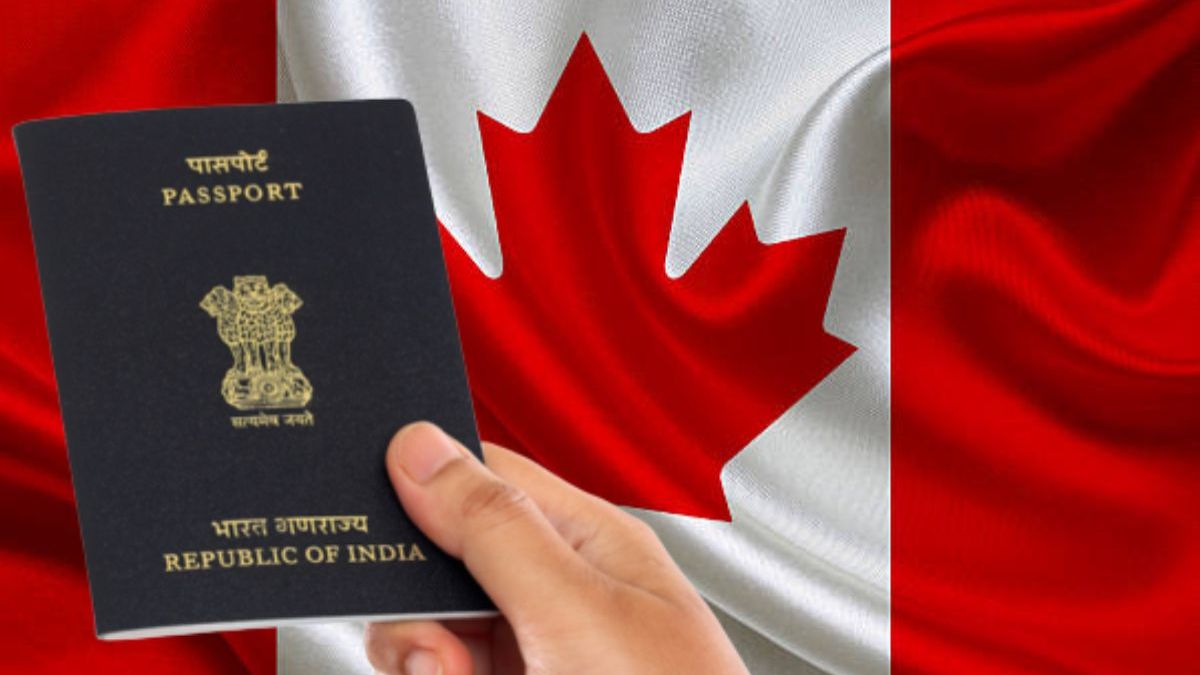Canada has long been a top destination for students, skilled workers, and families, thanks to its strong economy, welcoming culture, and high quality of life. But with demand for entry at record levels, the government has announced a series of new visa rule changes for 2025, aimed at improving fairness, reducing misuse, and aligning immigration with the nation’s labour and economic priorities.
The Canada Visa Rules Change 2025 covers multiple areas — from student visas and work permits to pathways for permanent residency (PR) — with several updates that applicants must carefully understand to avoid delays or rejection.
Why Canada Changed Its Visa Rules
The Canadian government has been dealing with a range of immigration challenges in recent years — including application backlogs, fraudulent submissions, and labour market imbalances. The 2025 reforms were introduced to streamline the system, ensure employer accountability, and prioritize genuine applicants.
Officials at Immigration, Refugees and Citizenship Canada (IRCC) emphasized that the new framework aims to attract skilled professionals, qualified students, and financially capable applicants, while safeguarding domestic employment opportunities for Canadians.
The underlying goal is to create an immigration ecosystem that is both efficient and sustainable, ensuring newcomers contribute meaningfully to the country’s growth.
Work Visa Policy Changes in 2025
Canada’s work visa policy has undergone notable changes to make employer compliance stricter and the overall process more transparent.
Stronger Employer Accountability
Under the new rules, employers who sponsor foreign workers must now prove a genuine labour shortage and the necessity of hiring a foreign national instead of a local candidate. This will involve stricter checks under the Labour Market Impact Assessment (LMIA) process.
Industry-Based Quotas and Priorities
While some industries may now face capped quotas to prevent over-hiring, sectors like healthcare, agriculture, and technology will see faster processing times. The government aims to prioritize essential sectors that directly support Canada’s long-term economic needs.
Renewals and Documentation
Renewal applications will now require updated documentation to confirm ongoing eligibility. Applicants must provide proof of employment, updated financial records, and valid work contracts when applying for extensions.
Permanent Residency (PR) Pathway Adjustments
Canada’s Express Entry system — the main route for permanent residency — has also been refined in 2025 with new scoring metrics that favour adaptability and contribution potential.
Key Changes to the Express Entry System
- Higher points are now awarded for experience in in-demand industries, including healthcare, technology, construction, and education.
- Additional points for French-language proficiency, promoting bilingualism.
- Provincial job offers carry more weight under the new Comprehensive Ranking System (CRS).
These updates reflect Canada’s evolving workforce needs and its effort to maintain diversity while supporting the domestic job market.
Family Sponsorship Simplified
The family sponsorship process has been simplified to reduce paperwork, though background and security checks have been tightened to prevent fraud. Families sponsoring relatives for PR will now go through faster processing if all documents and financial proofs are verified upfront.
Key Updates Under the Canada Visa Rules Change 2025
| Category | New Rules/Changes |
|---|---|
| Proof of Funds | Higher financial proof required for international students. |
| Education Institutions | Only Designated Learning Institutions (DLIs) accepted for student enrollment. |
| Language Requirements | Increased English/French proficiency required for study and work visas. |
| Processing Priorities | Healthcare, technology, and skilled trade sectors receive faster approvals. |
| Security Measures | Stricter identity verification and background checks introduced. |
These measures aim to enhance the credibility of Canada’s immigration system, ensuring only genuine applicants with verified credentials are approved.
How the New Rules Impact Skilled Workers
For skilled workers, the Canada Visa Rules Change 2025 is both an opportunity and a challenge.
Positive Impacts
- Professionals in high-demand sectors can expect faster application approvals.
- French-speaking and bilingual applicants now have a competitive advantage.
- Those with provincial nominations or long-term job offers can expect a smoother transition to PR.
Challenges
- Increased competition among applicants.
- Stricter documentation requirements.
- More weight on language test results (IELTS/TEF) and adaptability factors.
The new scoring formula prioritizes candidates who demonstrate strong integration potential — including communication skills, financial readiness, and local employability.
Preparing for the 2025 Visa Changes
Applicants planning to move to Canada in 2025 must start preparing early to meet the updated standards.
Steps to Take Now
- Stay informed: Regularly check the IRCC official website for new announcements and updates.
- Organize financial documents: Ensure all bank statements and fund proofs are easily accessible.
- Improve language proficiency: Retake language tests like IELTS or CELPIP if necessary to improve CRS scores.
- Seek expert help: Consult a registered immigration consultant or legal advisor for guidance.
- Apply early: Avoid last-minute submissions to minimize delays during high-demand periods.
Preparation is key — early applicants often face fewer processing delays and can adapt more easily to changing immigration standards.
How the Changes Affect International Students
Among all applicant groups, international students are likely to feel the most immediate impact of the new visa policies.
Stricter Proof of Funds
Students must now provide stronger financial evidence to prove they can cover tuition, living expenses, and emergency funds without external assistance.
Enrollment Limitations
Only students applying to Designated Learning Institutions (DLIs) will be accepted, ensuring that applicants are enrolled in recognized and regulated institutions.
Faster Processing for Priority Fields
Students pursuing programs in healthcare, science, technology, and engineering may receive faster processing and better post-graduation work permit opportunities.
However, those in low-demand fields could face longer waiting times or limited work permissions after graduation.
Common Challenges Applicants May Face
Despite the long-term benefits, the new visa rules will also create short-term hurdles for many applicants.
Key challenges include:
- Higher financial requirements for students and dependents.
- Increased application and processing fees.
- Longer waiting times in certain visa categories.
- More comprehensive security and background verifications.
- Stricter employer documentation for work visa renewals.
These changes demand more preparation and attention to detail from applicants — incomplete or inconsistent paperwork can now result in automatic rejections.
Future of Canada’s Immigration Policies
Looking beyond 2025, immigration experts believe Canada will continue modernizing its systems to address labour shortages and demographic needs.
Expected Future Trends
- Digital application systems for faster, paperless processing.
- Expansion of the Provincial Nominee Program (PNP) to include new tech and trade categories.
- Increased focus on remote work opportunities and digital economy visas.
- Enhanced pathways for temporary workers to transition into permanent residency.
These future reforms will likely make Canada’s immigration system more flexible, focusing on high-skilled, adaptable, and financially stable candidates.
Why Staying Updated Matters
With Canada’s immigration policies evolving every year, applicants who stay informed and prepared have the best chance of success. Missing small details—such as updated fund requirements or new document formats—can result in delays or rejections.
Applicants are advised to subscribe to IRCC updates, follow government announcements, and work only with authorized immigration advisors to ensure compliance with the 2025 regulations
5 Frequently Asked Questions (FAQs)
Q1. What are the main changes to Canada’s visa rules in 2025?
The new rules include higher proof of funds, stricter documentation for work visas, enhanced language requirements, faster processing for high-demand sectors, and updated scoring for PR applicants.
Q2. Who benefits most from these rule changes?
Applicants in high-demand professions such as healthcare, technology, and agriculture, along with French-speaking candidates, will benefit the most.
Q3. How do the new rules affect international students?
Students must now show stronger financial stability and enroll only in Designated Learning Institutions (DLIs). However, those in priority fields will enjoy quicker approvals.
Q4. Has the Express Entry system changed?
Yes. The Comprehensive Ranking System (CRS) has been revised to give more points to candidates with provincial nominations, French skills, and experience in critical industries.
Q5. How can applicants prepare for the 2025 changes?
Stay updated through IRCC, prepare all financial documents in advance, improve your language scores, and apply early to avoid processing delays











